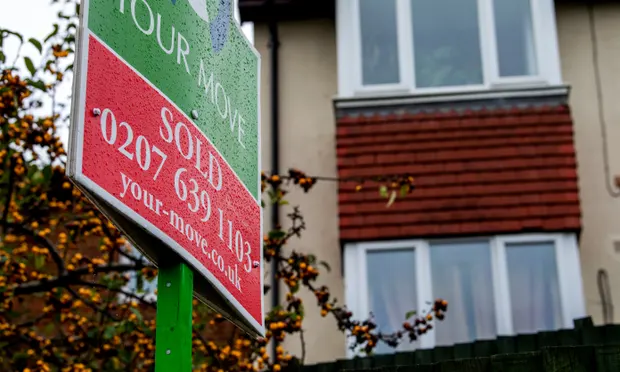House prices stalled last month after more than two years of growth as a sharp rise in mortgage rates fuelled caution among buyers, according to Britain’s official surveyors body.
The Royal Institution of Chartered Surveyors (Rics) also predicted that rents will be 4% higher in a year’s time due to an imbalance between strong tenant demand and the supply of homes to let.
Across the UK, 2% more property professionals reported house prices falling rather than rising, Rics said, ending a 28-month run of growth readings.
However, there was some regional variation in price trends. While prices were heading downwards in areas such as East Anglia and the southeast of England, surveyors said there was still an upward trend in Scotland and Northern Ireland, although the pace of growth was slower than earlier this year.
New buyer inquiries fell for the sixth month in a row in October, and survey feedback on buyer demand was negative across the UK. It now takes 18 weeks on average to sell a property, up from 16 weeks typically a year ago.
Simon Rubinsohn, chief economist at Rics, said: “The latest feedback to the Rics survey provides further evidence of buyer caution in the face of the sharp rise in mortgage costs.
“As a result, the volume of activity is likely to slip back over the coming months and realistic pricing is now much more important to complete a sale.
“The settling down in financial markets could provide some relief although it may be premature to assume this will be reflected in a reduction in lending rates any time soon.”
Rubinsohn added: “As far as the lettings market is concerned, the imbalance between demand and supply still appears unusually extended, leading to rent expectations in the survey remaining at elevated levels and it is difficult to see this changing any time soon.”
Tom Bill, head of UK residential research at estate agent Knight Frank, said:
“As the impact of the mini-budget fades, mortgage rates will calm down before stabilising. The downward pressure on prices will reduce to some degree as the economic and political backdrop becomes less disorientating.
Source: The Guardian


